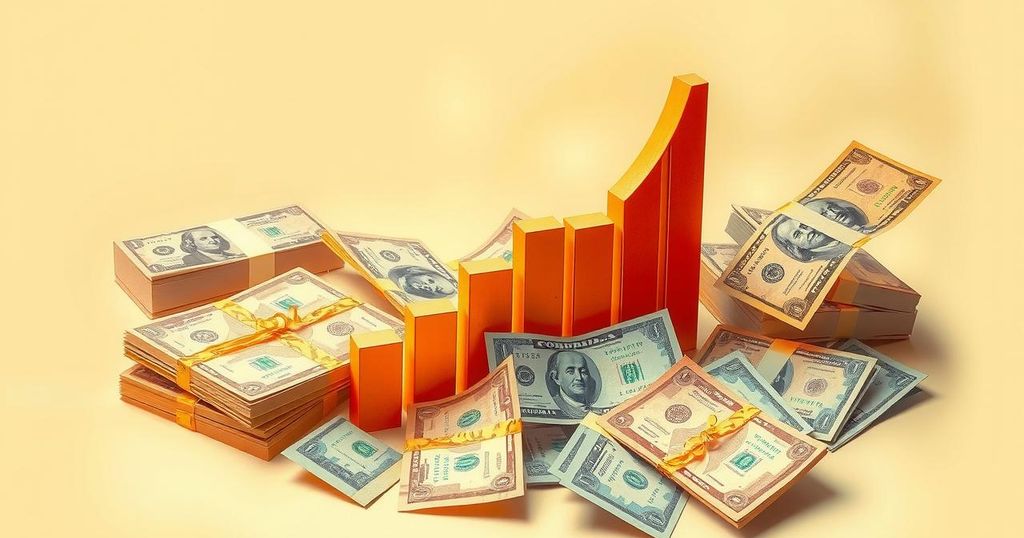South Africa Faces VAT Increase Amid Rising Living Costs

As South Africa considers a VAT increase, citizens, especially low-income households, face rising living costs. Finance Minister Enoch Godongwana proposed a VAT increment by 0.5 percentage points for the next two fiscal years. This adjustment raises concerns about its disproportionate impact on the economically vulnerable. Experts urge for alternative revenue solutions to avoid further economic hardship.
South Africa is confronting new economic difficulties as the government contemplates a Value Added Tax (VAT) increase affecting low-income households. Finance Minister Enoch Godongwana revealed in the 2025 Budget Speech a proposed increment of VAT by 0.5 percentage points for both the 2025/26 and 2026/27 fiscal years, raising the rate to 16% by 2026/27. This possible increase has alarmed citizens already struggling with the rising cost of living.
The anticipated VAT hike is likely to influence nearly all goods and services, with the exception of a few zero-rated items. A recent analysis by the Pietermaritzburg Economic Justice and Dignity Group (PMBEJD) indicates that a household’s basic grocery expenses might rise by approximately R375.16, resulting in a total grocery cost of R5,477.84. Essential toiletries and household goods may also see price increases, thereby intensifying the financial burden for numerous families.
Observers have expressed concern that this VAT increase will disproportionately affect lower-income households, which typically spend a substantial portion of their budget on necessities like food and electricity. Additionally, with electricity costs projected to rise by about 12.7%, many South African families are experiencing heightened financial pressure.
Small businesses too are expected to feel the negative effects of rising operational costs due to the VAT increase, which may render it difficult for them to remain competitive and could lead to job losses and economic decline.
Notably, several staple food items will remain exempt from VAT, including brown bread, rice, maize meal, and various vegetables, which aim to alleviate the impact on lower-income households. Starting May 1, 2025, additional food items such as canned goods and edible offal will also be included in the zero-rated VAT exemption list.
Economic experts have criticized the effectiveness of relying on VAT increases to resolve South Africa’s fiscal challenges, instead advocating for alternative revenue sources that do not exacerbate the hardships of communities already under distress.
After a contentious budget announcement that even postponed the budget speech due to disagreements over VAT increases, the national economic outlook appears precarious. Observers are concerned that the proposed VAT adjustments may further reduce affordability for daily living, despite the government’s emphasis on the need to enhance revenue and manage the budget deficit.
South Africa’s tax system is one of the most burdensome globally, compounded by high personal income tax and a tax structure accounting for nearly 25% of the nation’s gross domestic product. Such financial burdens could deter investment and economic growth, pushing households deeper into poverty.
Amid worsening economic conditions, marked by high unemployment and stagnant growth, analysts stress the need for strategies that foster job creation and stimulate the economy to rebuild confidence and stability among the populace.
The government’s response to mounting public opposition concerning the proposed VAT hike remains uncertain. Should the VAT increase be enacted amidst rising living costs, it could lead to a significant reduction in consumer spending, potentially exacerbating the economic challenges in South Africa. Citizens are encouraged to manage their budgets wisely, taking advantage of VAT-exempt food options while navigating the forthcoming financial changes.
In conclusion, South Africa’s potential VAT increase poses significant economic challenges, particularly for low-income households already contending with rising living costs. While certain staple food items remain exempt, the broader implications of a VAT hike could lead to heightened financial strain, particularly for small businesses and economically vulnerable families. The dire circumstances highlight the need for alternative fiscal solutions beyond VAT increases to alleviate poverty and stimulate economic growth, while addressing public concerns remains imperative for the government.
Original Source: evrimagaci.org








